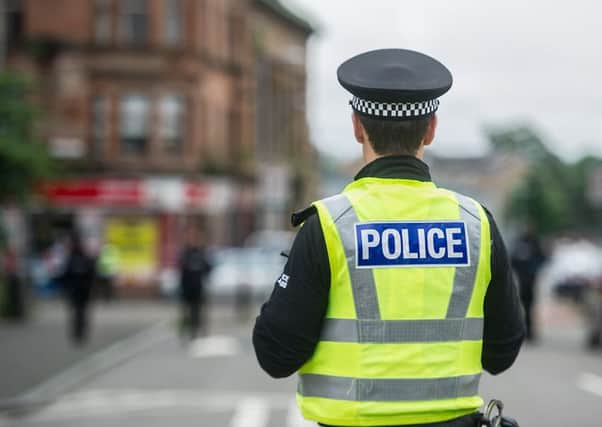Chris Marshall: Scrapping pay cap could be most significant statistic of all for police


One of the party’s communications staff even tweeted the fact with some police car emojis.
But as with so much presented by the government, the devil really is in the detail.
Advertisement
Hide AdAdvertisement
Hide AdWhile the overall number of crimes is down, violent offences, including crimes such as attempted murder and serious assault, rose by six per cent in a year and sex crimes are at their highest level since records began in 1971.
Sexual crimes in the category that includes internet offences rose by 50 per cent from 2,901 in 2013/14 to 4,360 in 2016/17.
Research estimates around half of the growth in all sexual crimes recorded by the police over the period is due to growth in cyber-enabled offences, with the majority of victims under the age of 16.
An expert group has now been set up to examine the problem.
And the overall number of crimes being cleared up by the police has fallen, with the detection rate now sitting at just 50 per cent.
The Scottish Conservatives noted that criminals now have a “50/50 chance of getting away with it”.
There’s a question mark over just how valuable the statistics are, with both the Scottish Police Federation and Association of Scottish Police Superintendents previously cautioning against putting too much emphasis on their importance.
But the truth is that the SNP are desperate to find a good news story in what has been another difficult year for Scottish policing.
Not only is Police Scotland budgeting for a deficit of around £45m this year, but its chief constable, Phil Gormley, is currently on extended leave while two bullying allegations are investigated by a watchdog.
Advertisement
Hide AdAdvertisement
Hide AdThe man filling in for Mr Gormley in his absence, Deputy Chief Constable Iain Livingstone, will travel to Inverness tomorrow for a meeting of the Scottish Police Authority.
Among the items up for discussion will be the force’s 10-year strategy, which was unveiled earlier this year and hopes to safeguard Police Scotland’s long-term viability.
In a paper published yesterday, Police Scotland warns the Scottish Government’s decision to scrap the one per cent pay cap for public sector workers will bring “significant cost pressures”.
Even a below-inflation pay award of two per cent will leave the force looking for savings of £26m – the equivalent of 600 officers.
Ministers will never countenance the prospect of hundreds of officers being offered early retirement to help fund a salary increase for those that remain.
But the figures highlighted by Police Scotland underline the difficulties lifting the pay cap will cause across the public sector unless extra funding comes from the Scottish Government.
Police Scotland is actually in a better position than most, with the government protecting its budget in real terms until 2021, equating to an additional £100m.
But the sensitivity analysis drawn up by senior figures in the force, which will be presented to the SPA tomorrow, shows just how precarious the situation remains, with even a modest pay award enough to cause considerable concern.